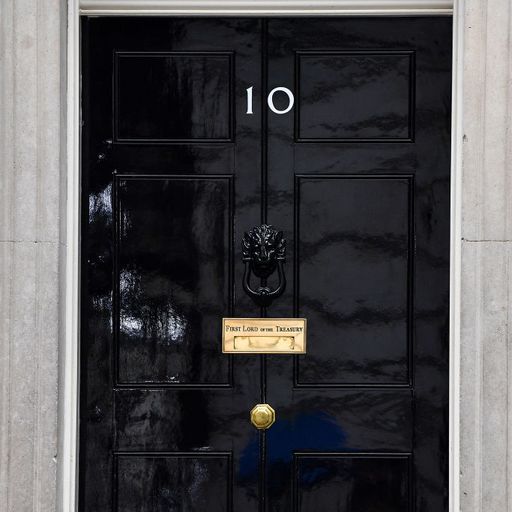Boris Johnson faces Tory fury after brutal cabinet purge
The new PM's ruthless purge of Theresa May loyalists from the cabinet has provoked anger among many Conservative MPs.
Thursday 25 July 2019 02:08, UK
Boris Johnson will make his Commons debut as prime minister
after a cabinet massacre that saw 17 ministers lose their jobs and
hardline Brexiteers appointed to top roles.
After an 8.30am meeting of the new cabinet, Mr Johnson will make a statement to MPs in the Commons and face his first showdown with Jeremy Corbyn and furious pro-Remain MPs.
Mr Johnson will then appoint middle-ranking and junior government ministers, in what is likely to be a further purge of Remainers and see promotion for more Brexit believers.
In particular, there
was a furious Tory backlash over the sacking of the popular pro-Brexit
defence secretary Penny Mordaunt after less than three months in the
job, after she backed Mr Johnson's rival Jeremy Hunt.After an 8.30am meeting of the new cabinet, Mr Johnson will make a statement to MPs in the Commons and face his first showdown with Jeremy Corbyn and furious pro-Remain MPs.
Mr Johnson will then appoint middle-ranking and junior government ministers, in what is likely to be a further purge of Remainers and see promotion for more Brexit believers.
"If Penny has been sacked for supporting Jeremy Hunt, that's just vindictive," a close friend told Sky News. "It looks as though if she had supported Boris, she would have been in line for a top job."
The biggest loser in Mr Johnson's brutal cabinet bloodbath was Mr Hunt, who finds himself on the Tory backbenches just days after being a contender for party leader and prime minister.
After a stand-off in which Mr Johnson was the clear winner, some Tory MPs claimed Mr Hunt had made a mistake by turning down the Ministry of Defence because he viewed it as a demotion.
"Defence secretary is a very senior and important job," a former Tory cabinet minister told Sky News. "And with the threat posed by Iran at the moment it's one of the most important jobs in cabinet."
Among the biggest winners in the cabinet carnage was new Home Secretary Priti Patel - recalled less than two years after being sacked from her job as international development secretary for secret talks with the Israeli government.
But perhaps the biggest winner was Brexit hardliner Dominic Raab, an early leadership contender who has been appointed not just foreign secretary but also first secretary of state - effectively deputy prime minister.
Mr Raab, who has just six months' cabinet experience as Brexit secretary last year, will deputise for Mr Johnson at Prime Minister's Questions and will be seen as the Tory right's heir apparent should the new PM fail to deliver Brexit by 31 October.
Another big winner is Jacob Rees-Mogg, chairman of the pro-Brexit European Research Group of Tory MPs, who moves from the backbenches to leader of the Commons. He will now spearhead Mr Johnson's Brexit battles in parliament against pro-Remain MPs.
Within minutes of becoming prime minister, Mr Johnson committed what critics claimed was a gaffe when he breached protocol by revealing his conversation with the Queen at Buckingham Palace.
Speaking to aides when he entered the front door of 10 Downing Street, just after his speech upon returning from the palace, he said Her Majesty had told him: "I don't know why anyone would want the job."
Mr Johnson's cabinet purge was also attacked by Nick Boles, who resigned the Tory whip after failing to secure a softer Brexit.
He told The Times: "The hard right has taken over the Conservative Party.
"Thatcherites, libertarians and no-deal Brexiteers control it top to bottom. The Brexit Party has won the war without electing a single MP. Boris Johnson isn't our new prime minister, Nigel Farage is."
While the new prime minister was carrying out his reshuffle inside 10 Downing Street, Whitehall was blocked by hundreds of anti-Johnson protesters, which meant some new ministers could not enter the street through the front gates.
Besides Mr Johnson's Commons debut as PM and clashes with his critics, MPs are predicting a number of resignation speeches from the backbenches by ex-ministers who either resigned or were sacked.
Parliament then breaks for a five-week summer recess, in which Mr Johnson is expected to embark on visits throughout the UK to sell his "do or die" Brexit policy and travel to meet European leaders and US President Donald Trump.





